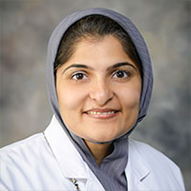Dallas
214-456-5959
Fax: 214-456-5963
Plano
469-303-2400
Fax: 469-303-2407
Park Cities
469-488-7000
Fax: 469-488-7001
214-456-5959
Fax: 214-456-5963
469-303-2400
Fax: 469-303-2407
469-488-7000
Fax: 469-488-7001
Thyroid cancer is cancer of the thyroid gland, an organ at the base of the neck that produces hormones that help control heart rate, blood pressure, body temperature and weight.
There are four types of thyroid cancer:
Papillary is the most common type in the U.S., and most children with papillary thyroid cancer can be cured if it is diagnosed early.
Follicular is the second most common type in the U.S., and most children with follicular thyroid cancer can be treated successfully if it is diagnosed early.
Medullary is a rare type of thyroid cancer, medullary cancer tends to be more aggressive. It can be easier to control if it’s found and treated before it spreads to other parts of the body.
Anaplastic is the rarest type of thyroid cancer, these cells tend to grow and spread very quickly. Anaplastic thyroid cancer is very hard to control, but occurs almost exclusively in adults.
Many children with thyroid cancer do not have any symptoms until their disease has progressed. Thyroid cancer symptoms may include:
There are several methods for diagnosing thyroid cancer. Your child’s doctor may use a combination of these methods:
The exact cause of thyroid cancer is unknown. As with all types of cancers, it is characterized by the growth of abnormal cells that often multiply quickly, forming what is known as a tumor.
The most common treatment for thyroid cancer is surgery to remove all or part of the thyroid gland. A thyroid lobectomy is followed by radioactive therapy. Although pediatric thyroid cancer is usually caught at an advanced stage, it has an excellent prognosis, with long-term survival rates of over 95%.
Additional treatments may include:









